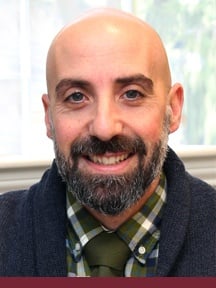
Written by Donald Cucuzzella
 By Donald Cucuzzella • July 29, 2014
By Donald Cucuzzella • July 29, 2014
On a daily basis, I receive questions from students all over the world on degree programs at the School of Applied Science and Technology. Of course, I’m happy to help answer any questions as my role at the University is to help guide students toward the best possible educational choices for them.
One question, in particular, seems to have students stumped, sending them into a spiral of clicks, research and confusion before they finally decide to email me for clarification: can a student who previously graduated with a bachelor's degree in Nuclear Engineering Technology return to the University to receive the ABET-accredited bachelor's degree in Nuclear Energy Engineering Technology?
So before you go on a quest for the answer, it requires a quick Thomas Edison State University history lesson to address.
Since the 1980s, the University has offered a Bachelor of Science in Nuclear Engineering Technology. This degree was popular amongst our military students who had gone through the U.S. Navy’s Nuclear Power School and received college credit toward this degree for their training. In 2011, the School of Applied Science and Technology created a new version of this degree, a Bachelor of Science in Nuclear Energy Engineering Technology. In 2012, we received accreditation for the new degree from the Engineering Technology Accreditation Commission of ABET. This accreditation status was made retroactive as of October 2010, so any students who started the Nuclear Energy Engineering program by that date, and then graduated, had an ABET-accredited degree.
If you are one of these students, you can return to the University for a second degree, but will have to follow the University's second baccalaureate degree policy. As part of this policy, you are required to take a minimum of 24 new credits ('new' meaning after the date of your most recent degree). You can read more about this policy here.
If you are a student currently enrolled in the Nuclear Engineering Technology degree and think that an ABET-accredited degree is more beneficial for your career, you can change to the Nuclear Energy Engineering Technology program. By switching now, you can save yourself the time and money required to complete 24 new credits, and possibly even more credits should there be any curriculum changes since you first enrolled at the University.
This article was originally published in July 2014 and has been updated for accuracy.

Written by Donald Cucuzzella